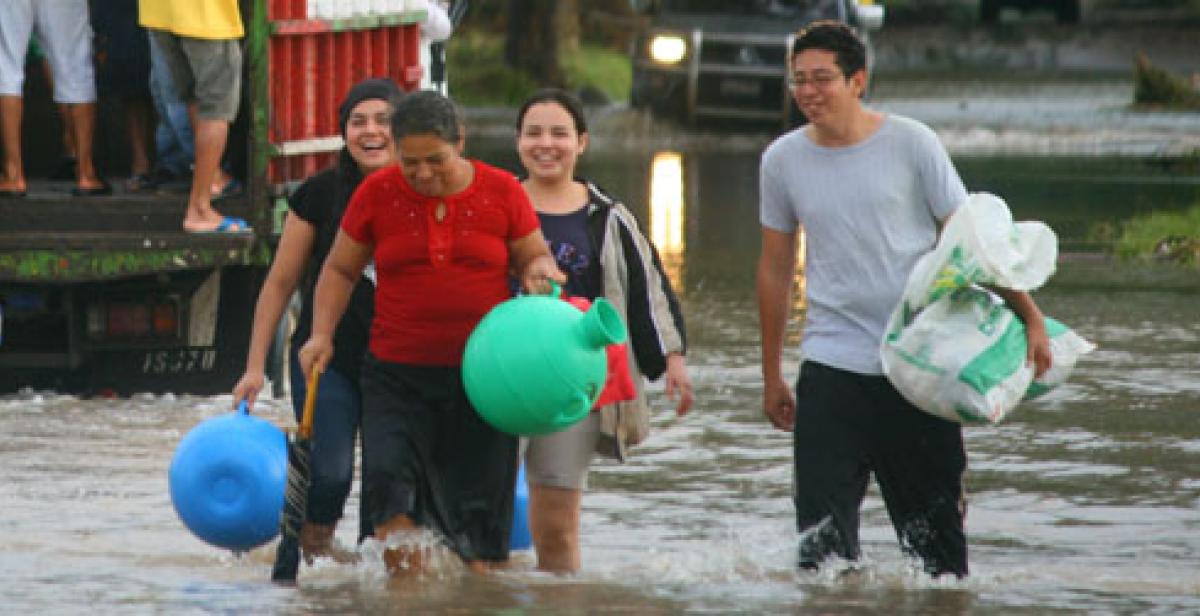Tens of thousands of people have been displaced by the floods in El Salvador – indeed, the UN are calling it “one of the greatest disasters” in the country’s history.
Once again, a massive effort is needed to respond to the immediate needs, and to tackle the long-term consequences. Crops and livelihoods have been destroyed, as highlighted by a report from the BBC correspondent in San Francisco Menendez, a region where Progressio has been working with our partner organisation UNES.
Even if we cannot say with certainty that particular climatic events are caused (or made worse) by global warming due to greenhouse gas emissions, our partners in Central America are clear that their climate is changing – and that the world needs to change its ways in order to respond.
So it was a disappointment for me during the recent Conservative party conference that the enthusiasm for environmental action seemed to take a knock.
It was encouraging to hear the Environment Secretary, Caroline Spelman, highlighting her commitment to next year’s Rio+20 Earth Summit. But the Chancellor, George Osborne MP, raised concern with some very luke-warm comments on climate change, stating that the UK would move “no slower” but also “no faster” than other EU countries in cutting emissions. Meanwhile, the PM barely touched on environment issues at all from the platform.
To be clear: it isn’t that there has been any visible change in policy as such. Key ministries like DFID, DEFRA, and DECC are all working hard on environmental issues; and, on paper, the government’s climate targets remain ambitious.
Ministers have also been arguing that we should judge the government on its record, not its rhetoric. But a change in tone and rhetoric like this is a serious worry – the Chancellor’s comments risk signalling to other EU countries that the UK is lowering its level of ambition on emissions cuts. Rapid reassurance from the top that the government is holding their nerve in this area would be very welcome.
All this matters for development policy in particular because we know – from the drought in East Africa to the storms in Central America – how directly environmental damage impacts on poor people around the world.
Of course, it’s hard to attribute one weather event to climate change, but the science tells us that the frequency and severity of droughts and tropical storms is increasing all the time – and that this is down to the effects of increased CO2.
So, if we are serious about making a sustainable difference to poor people in the long run, then we have to tackle climate change. Otherwise the best efforts of our development workers and our development spending could be swept away.
Once again, the message from communities on the ground is, “listen to us”. We’ve been hearing very clearly from our partner organisations like UNES in El Salvador that they lay the responsibility for climate emissions at the door of industrialised countries like our own.
They praise us when we legislate to bring down emissions – as earlier this year in May – and don’t understand when we look like we’re backtracking.
For them, acting on climate change is an urgent, straightforward matter of justice.
Tim Aldred is Progressio’s Head of Policy and Communications.
Photo: People wading through flood water in San Francisco Menendez, El Salvador (photo © Marcos Cerra/Progressio)



